June 10, 2025 | 13:23 GMT +7
June 10, 2025 | 13:23 GMT +7
Hotline: 0913.378.918
June 10, 2025 | 13:23 GMT +7
Hotline: 0913.378.918
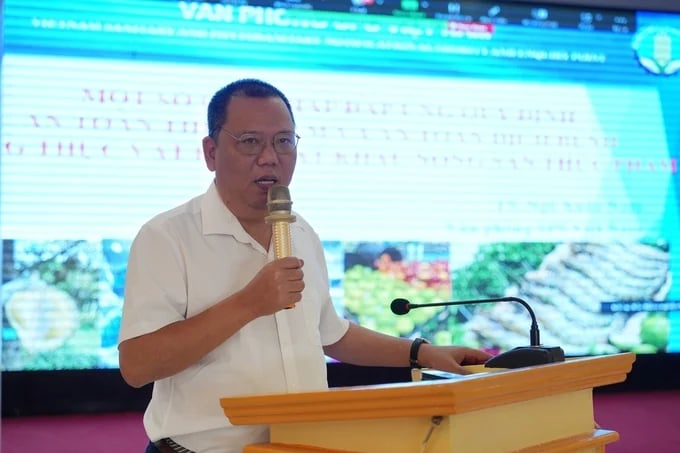
Dr. Ngo Xuan Nam, Deputy Director of the Vietnam SPS Office, presented solutions to meet food safety and animal and plant disease safety regulations. Photo: Nguyen Thuy.
According to Dr. Ngo Xuan Nam, Deputy Director of the Vietnam SPS Office, Vietnam recorded an unusual increase in the number of warnings from the EU in the first six months of the year. There were a total of 57 active substances commonly controlled by the EU that businesses and farmers need to pay special attention to, an increase of more than 80% compared to the same period in 2023, which had only 31 warnings. Notably, Ho Chi Minh City contributed a large proportion with 23 out of 57 warnings, even though the main production areas may not be located in Ho Chi Minh City.
This increase has led the EU to enhance the frequency of border checks on agricultural exports from Vietnam. Currently, four agricultural products are subject to stricter controls: dragon fruit (30%), chili (50%), okra (50%), and durian (10%).
The EU periodically reviews and applies enhanced import control and management measures every six months. However, Vietnam's comments on draft SPS notifications remain limited. Only a few localities, such as Hai Duong, are actively engaged and have responded fully and promptly. Conversely, comments on SPS notifications and draft measures from WTO members are very limited, leading to a situation where Vietnam's views and requirements are not clearly expressed.
Without timely solutions, Vietnam's agricultural, food, and aquatic product exports risk increased border checks under EU regulations, affecting export progress and increasing competition in the international market.
In the first half of 2024, the RASFF (Rapid Alert System for Food and Feed Safety) recorded a total of 2,708 warnings, of which Vietnam accounted for 57 warnings, equivalent to 2.1%. Although this rate is average compared to countries in the region, it represents a significant increase from 2023, when Vietnam received a total of 67 warnings from the EU for the entire year.
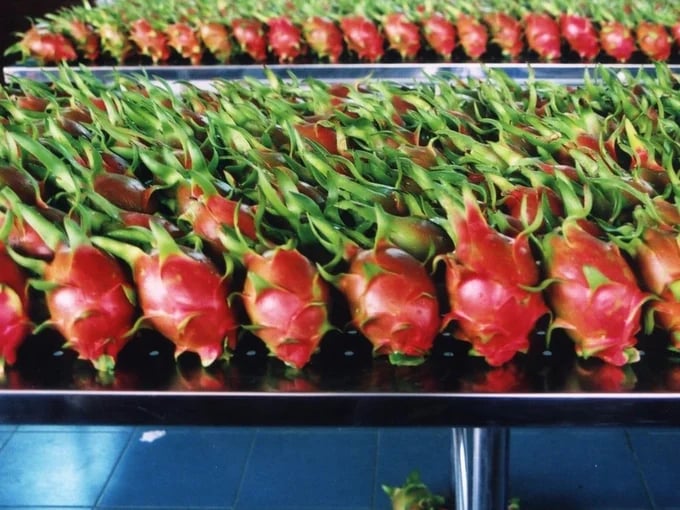
Dragon fruit imported into the EU market is subject to a 30% increase in border inspection frequency. Illustrative photo.
Some Vietnamese agricultural products warned by the EU include:
- Vegetables, fruits, spices, and products of plant origin: Dragon fruit, chili, cinnamon, okra, rambutan...
- Seafood products: Fish, squid, shrimp, frog, clam...
- Other processed products: Basil essential oil, coconut jam, rice noodles...
Currently, there is a global trend of countries and territories enhancing food safety measures and animal and plant disease safety for imported agricultural, food, and aquatic products. This trend includes a preference for safe products, ensuring traceability, rational exploitation, organic products, emission reduction products, value-based products, and green products.
Meanwhile, domestic production in Vietnam has not yet met the stringent requirements of the European market. One reason for the increased warning levels for Vietnamese agricultural products imported into the EU is that many exporting enterprises have not fully complied with the regulations of the importer. The regulations on maximum residue levels (MRL) for each active ingredient vary by country, requiring enterprises to have in-depth research and understanding of science and technology.
Moreover, traditional practices among producers in some areas do not include measures or plans to use pesticides, antibiotics, and fertilizers according to instructions. For example, in Thua Thien Hue in 2020, 95% of shrimp farming households used antibiotics. In the growing areas, there is a phenomenon of using pesticides and fertilizers not in accordance with regulations, resulting in pesticide residue levels exceeding the permitted limits. Additionally, the control of harmful organisms and sources of impact is not stringent, leading to non-compliance with the importer's regulations due to varying MRL levels for each active ingredient in each country.
In aquaculture areas, there is also the issue of antibiotic abuse due to farmers using antibiotics arbitrarily, using incorrect dosages, and lacking knowledge about pathogenic bacteria. The farming environment is further polluted by sources such as pesticides and chemical fertilizers.
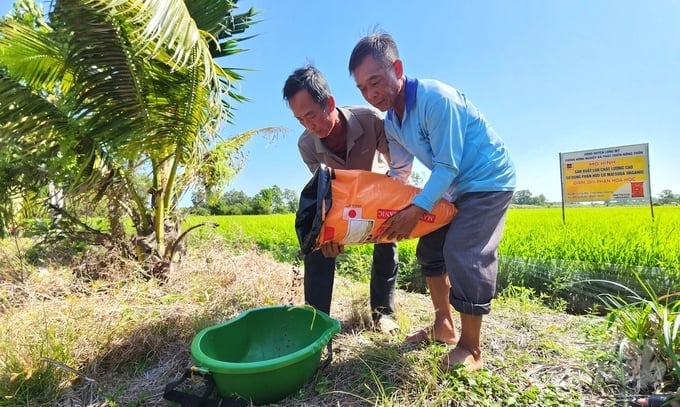
Production areas need to use fertilizers according to regulations. Photo: Kim Anh.
The responsibility for inspection and supervision is another reason for the increase in the number of warnings. Vietnamese law does not have strong enough regulations and sanctions to handle violations of food safety. The rate of monitoring codes for growing areas and packaging facilities is not up to standard. For example, only 52% of growing areas and 47% of packaging facilities for durian are monitored.
Additionally, the processes of packaging, pre-processing, processing, and checking input materials must comply with the Hazard Analysis and Critical Control Points (HACCP) process and adhere to SPS measures on food additives and food safety for product packaging.
Recently, the Prime Minister approved the Project "Improving the Effectiveness of the Implementation of the Agreement on the Application of Sanitary and Phytosanitary Measures (SPS) of the World Trade Organization and SPS Commitments within the Framework of Free Trade Agreements."
The project includes eight groups of tasks, nine solutions, and ten priority activities. By 2030, the goal is for the rate of national standards and national technical regulations on the food safety quality of agricultural, forestry, and fishery products to be equivalent to international standards, reaching 100%. Additionally, 100% of food safety management officers and animal and plant quarantine officers at all levels will be trained and updated annually on professional knowledge.
In parallel with the project's implementation, there needs to be synchronized participation from growing and breeding areas, enterprises, packaging and processing facilities, industry associations, management agencies, and localities.
The Central management agency should strengthen negotiations to remove difficulties with importing countries regarding SPS measures, sign and upgrade FTAs, promote market opening, and build a database that regularly updates food safety measures in key export markets.
It is also crucial to update regulations of importing countries promptly and disseminate them to agencies and units for appropriate adjustments. Increasing the compilation and posting of documents and handbooks on technical standards, food safety, and SPS regulations for markets such as China, the EU, and Korea is essential.
At the local level, it is necessary to strengthen propaganda, training, and dissemination of regulations on animal and plant quarantine. Raising awareness among farmers about food safety and disease safety in agricultural product trade is vital. Developing mechanisms and policies to encourage businesses to invest in infrastructure, large-scale preliminary processing, processing, preservation, and cold storage areas is also important. Additionally, there should be strengthened inspection and supervision of raw material areas, packaging, preliminary processing, and processing facilities.
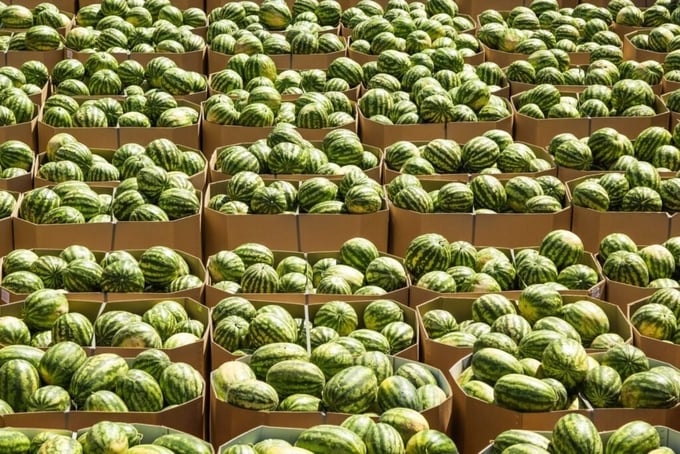
The Prime Minister has approved the Project “Improving the Effectiveness of the Implementation of the Agreement on the Application of Sanitary and Phytosanitary Measures (SPS) of the World Trade Organization and SPS Commitments within the Framework of Free Trade Agreements”. Illustrative photo.
To ensure that the export of agricultural and aquatic products from Vietnam to the EU does not encounter problems related to food safety, businesses need to pay attention to controlling active ingredients and microorganisms as recommended by warnings from the EU.
The Vietnam SPS Office recommends that businesses pay attention to controlling active substances based on warnings from the EU for Vietnamese agricultural products. Below is a list of active substances and microorganisms to note:
Seafood products:
Group of vegetables, fruits, spices and products of plant origin:
Other processed products:
The Vietnam SPS Office recommends that businesses implement strict control measures and ensure compliance with these regulations to minimize risks and ensure success when exporting products to international markets.
Translated by Quynh Chi

(VAN) China's outbound shipments of rare earths in May jumped 23% on the month to their highest in a year, though Beijing's export curbs on some of the critical minerals halted some overseas sales.

(VAN) To sustain capital flow, administrative reform alone is not enough; what farmers truly need is an ecosystem where both government and businesses grow together in support.
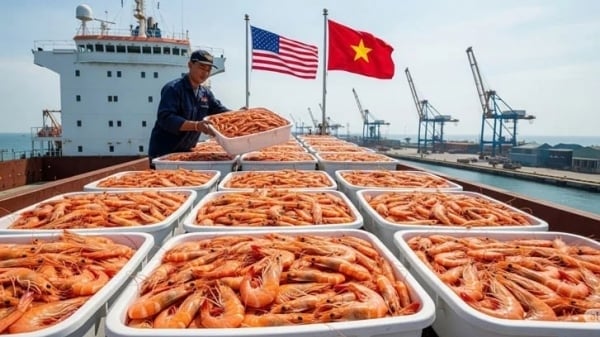
(VAN) Vietnam and the United States are proactively working together, each in their own way, to ensure that every container of agricultural goods carries not just products, but also long-term trust and value.
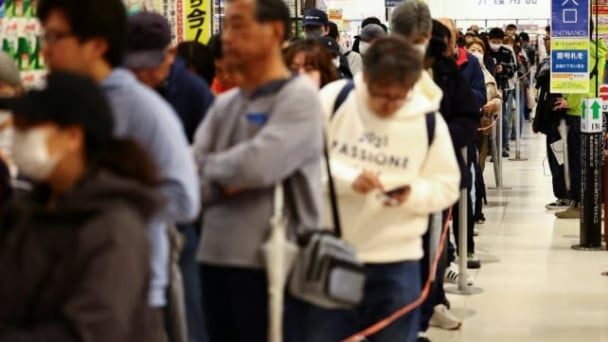
(VAN) Stores have started selling rice from the government’s stockpile to feed demand for the staple.
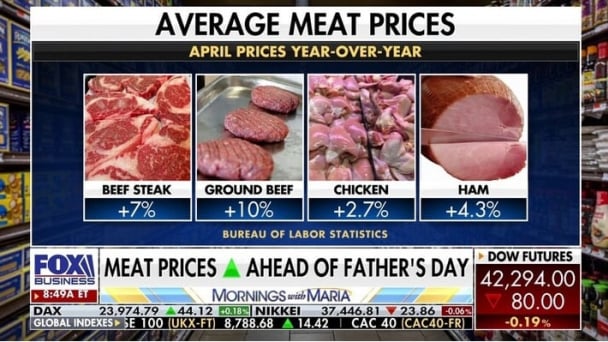
(VAN) Omaha Steaks CEO says rebuilding cattle herds will take about a year to ease price pressures.
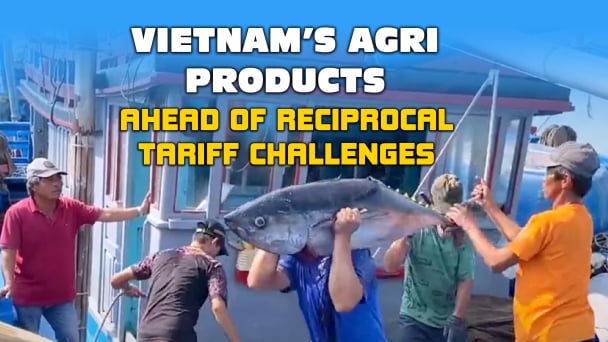
(VAN) Reciprocal tariffs and recent NOAA rulings are presenting substantial obstacles for Vietnamese tuna exporters in the U.S. market. As a result, the industry is actively seeking alternative export destinations.
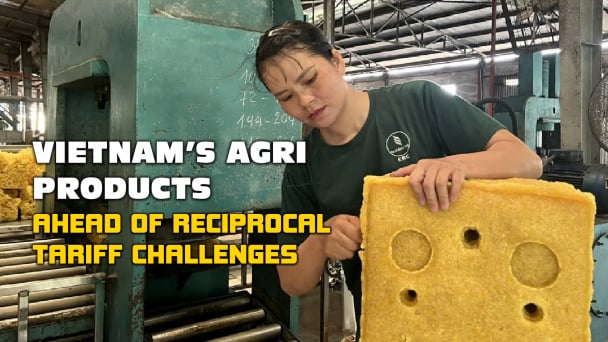
(VAN) Although the U.S. holds a small share of Vietnam’s rubber exports, newly imposed reciprocal tariffs are expected to impact the sector. Vietnamese enterprises must optimize the use of significant markets and free trade agreements.